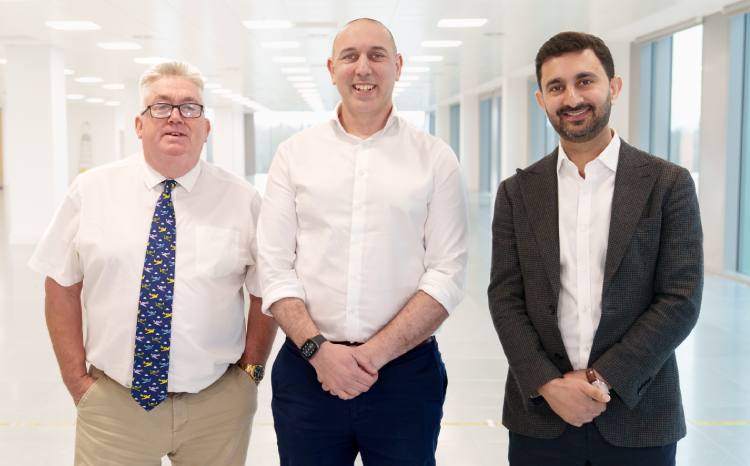CCIO profile: Dr Paul Altmann
- 19 June 2012

Paul Altmann, the chief clinical information officer at Oxford University Hospitals NHS Trust, has been having an exciting few months. But, he says, it is nothing to the fun that is to come.
In December 2011, the trust went live with Cerner Millennium in A&E and maternity across three sites. As CCIO, Dr Altmann was clearly in the front line.
“We knew it was going to be hard and we knew there were going to be glitches,” he says. And inevitably there were.
As Dr Altmann points out: “If you are taking information from legacy systems, you know that your new system cannot be configured optimally. Therefore you have to start polishing once the data has been received.”
New ways of doing things
Five months later and the system has largely stabilised in terms of the legacy data; clinics that had never appeared on the old system are now on Millennium and work is underway to optimise the clinic templates.
“Overall people are pretty happy,” he says. “Oh there’s been lots of groaning and moaning but that is inevitable.”
“By the end of the first month we were getting data out of Millennium that was of good enough quality to send invoices to the strategic health authority,” he adds proudly.
“Where there are problems with reporting it is because either the clinics have not been properly built or because people are not quite used to doing things in new ways.”
None of these were unknown issues and Dr Altmann says part of the strength of his role has been this knowledge. “You can never get it perfect in the design stage,” he says.
“And I spent a lot of my time telling people that. If you try to get it perfect in design, you will find you have designed yourself into an uncomfortable place. So keep it simple and then once it is up and running you can do some final tweaks.”
Sound advice, perhaps, but an approach that relies on having a knowledgeable resource in-house. “The difficulty with that approach is that all the contracted activity is about going live and you only get a little bit of support after go-live. Then it is business as usual. We would not choose to contract that way normally.”
Here, there and everywhere
Dr Altmann had barely a moment’s rest while the implementation was ongoing. “I have been everywhere,” he says.
“From strategic board level all the way down to working in A&E on the weekend of go-live, when I had five hours sleep. It has been the full gamut of interaction at all levels, with lots of cajoling, coaxing, encouraging and problem solving.”
Much of his role has been going between users and the project team. “The CCIO role is very much about facilitating discussion and interpreting what people are saying.
“Very often, clinical staff do not know what the right question is, so I am helping them to express what they want to the technical guys. That’s what I spend eight tenths of my time doing.”
He has also spent time on the relationship with Cerner. “The CCIO has to maintain a healthy relationship with the supplier, one that is free from misunderstanding,” he says.
Another important role has been helping to set expectations. “I spend a lot of my time reminding people of the benefits that the work now will lead to. That’s right across the service, not just clinicians but clerical staff too.”
Secrets of success
Dr Altmann regards himself as a successful CCIO and puts this down to a number of factors. He is a credible clinician carrying a clinical workload; he has almost limitless enthusiasm for bringing the benefits of IT enabled care to the workplace; he has a deep knowledge of Cerner Millennium; he is working within a clearly defined and well developed project that will deliver clear business and clinical benefits; and he has the backing of his executive.
“The chief executive and chairman of the trust insist that my role is central to the project,” he says. “This is not just about the deployment now but about what we do in the future. This is never ending.”
The trust has a very clear structure with the project group chaired by the trust chief executive, Sir Jonathan Michael. Beneath that is a steering group chaired by the deputy chief executive, Andrew Stevens, who is also the director of planning and information.
Dr Altmann chairs the weekly design architecture group, which looks at the tweaks needed and decides which get top priority.
The only moan he has is the amount of time allocated to the CCIO role, currently one day a week. “I would like to have more help,” he says.
“My working pattern has been 8am to the end of the working day, whenever that is, then a bit of time with the family and working until 1am correcting spread sheets and getting them ready to give to engineers for the next day’s tweaks.”
Getting to the tipping point
With luck, this should improve once the hard slog of the first eighteen months of stabilising the system and training the staff is out of the way.
The immediate next steps are to get the rest of the trust up and running and to start using some of the clinical functionality such as electronic requesting, documentation and discharge processes and finally onto prescribing. Then once this is bedded down, the trust will start scanning legacy paper.
“And that’s when we will start to drive the electronic health record,” says Dr Altmann. “That’s when we will start having fun with outcomes and finding out the full potential of this system. That’s going to be the tipping point.”





